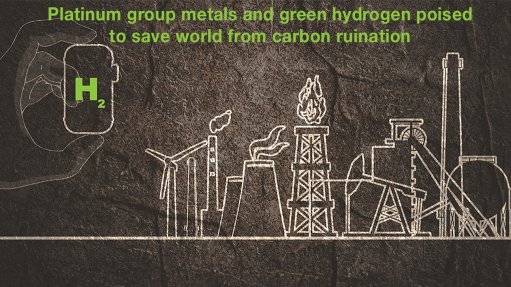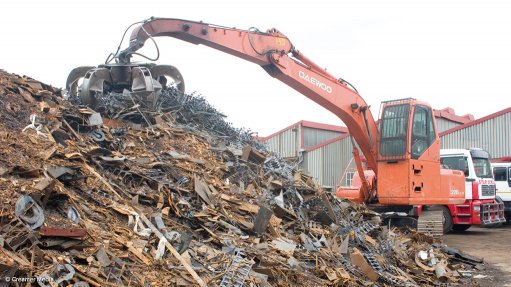Organic waste management industry trends to look out for in 2023
This article has been supplied as a media statement and is not written by Creamer Media. It may be available only for a limited time on this website.
Last year the organic waste management sector saw a significant amount of development in alternative waste treatment (AWT) methods and technology that was responsible for diverting more of this waste stream from landfill. This created a more secondary resource supply and a stronger secondary resource economy. We saw this with the compost and biogas markets. In 2023 we will see a continuation of the growth of the secondary resource market for organic waste.
BiobiN South Africa discusses the top trends to look out for:
Increased organic waste repurposing across multiple sectors
“Retail, hospitality and agriculture all saw rapid adoption of circular and organic waste repurposing systems, like composting units. This can be attributed to regulatory pressure with landfill diversion targets and the voluntary food loss and waste agreement aimed at redistributing the edible food supply. As a result, on-site composting has proven to be a working model for these sectors,” says Brian Küsel, director of BiobiN South Africa.
Given the success of this model, other sectors are likely to adopt circular waste management models for processing organic waste. “One industry in which we predict this will likely happen quite rapidly in 2023 is the property market,” says Küsel. “Green housing estates that give residents the opportunity at a more sustainable living situation are becoming increasingly popular in many parts of the country. A typical green housing estate boasts large gardens, green open spaces, and detailed landscaping. To support this type of estate design, an on-site composting solution not only provides residents with a more sustainable way to discard their food waste but also provides the estate with all its compost for the gardens.”
Centralised waste processing management and hubs
“We have seen community waste depots and recycling buy-back centres for solid recyclables, we will see more central organic waste processing plants, especially enclosed composting units,” says Küsel. “Whether it be in an estate, university, office park or retail distribution centres, having one central point to bring organic waste to is a great way for a number of businesses to collaborate and save costs associated with landfill disposal and transporting waste.”
More business-to-business collaboration and centralised waste management systems will result in more organic waste diverted and a significant secondary resource injection into a local circular economy.
Increased regulatory pressure for organic waste diversion
National government has removed the requirement of a permit for organic waste composting. For a facility to compost its organic waste, it only needs to comply with the Norms and Standards for Organic Waste Composting.
The Department of Forestry, Fisheries and Environment has chosen to do this to encourage composting as a treatment method for organic waste.
As we move closer to the eventual 2027 organic landfill ban, we can expect more regulatory pressure and increased landfilling levies for organic waste.
Demand for more regional and local composters
On-site composting units, like BiobiN, rapidly process large volumes of food and organic waste into a product that is considered as non-hazardous according to waste classification regulations. Local composters are more likely to accept volumes of partially processed organic waste as it reduces the time to produce the end product of high-grade compost.
With more on-site organic waste processing units, there will be a need for more composters to receive volumes of partially composted waste. The compost market is also growing with restrictions increasing towards the use of synthetic fertilisers. Composting is the more sustainable alternative solution to soil preservation.
“With more collaboration, more input into an organic waste circular economy and hopefully more regional composters, we can completely close the loop on organic waste within a few key sectors in 2023, like retail and hospitality,” says Küsel.
Comments
Press Office
Announcements
What's On
Subscribe to improve your user experience...
Option 1 (equivalent of R125 a month):
Receive a weekly copy of Creamer Media's Engineering News & Mining Weekly magazine
(print copy for those in South Africa and e-magazine for those outside of South Africa)
Receive daily email newsletters
Access to full search results
Access archive of magazine back copies
Access to Projects in Progress
Access to ONE Research Report of your choice in PDF format
Option 2 (equivalent of R375 a month):
All benefits from Option 1
PLUS
Access to Creamer Media's Research Channel Africa for ALL Research Reports, in PDF format, on various industrial and mining sectors
including Electricity; Water; Energy Transition; Hydrogen; Roads, Rail and Ports; Coal; Gold; Platinum; Battery Metals; etc.
Already a subscriber?
Forgotten your password?
Receive weekly copy of Creamer Media's Engineering News & Mining Weekly magazine (print copy for those in South Africa and e-magazine for those outside of South Africa)
➕
Recieve daily email newsletters
➕
Access to full search results
➕
Access archive of magazine back copies
➕
Access to Projects in Progress
➕
Access to ONE Research Report of your choice in PDF format
RESEARCH CHANNEL AFRICA
R4500 (equivalent of R375 a month)
SUBSCRIBEAll benefits from Option 1
➕
Access to Creamer Media's Research Channel Africa for ALL Research Reports on various industrial and mining sectors, in PDF format, including on:
Electricity
➕
Water
➕
Energy Transition
➕
Hydrogen
➕
Roads, Rail and Ports
➕
Coal
➕
Gold
➕
Platinum
➕
Battery Metals
➕
etc.
Receive all benefits from Option 1 or Option 2 delivered to numerous people at your company
➕
Multiple User names and Passwords for simultaneous log-ins
➕
Intranet integration access to all in your organisation


















